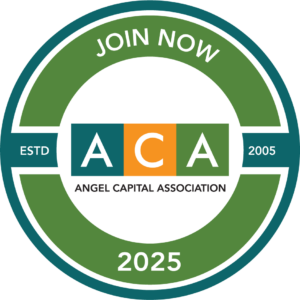Angel Insights Blog

Monday, July 15, 2013
New SEC Rules Could Kill Angel Investing
Last week the Securities and Exchange Commission approved two rules and one proposed rule that will change how entrepreneurs raise angel capital and may make investment more difficult for angels and startups alike. We think fewer angels will invest as a result, unfortunately hurting the startups that create jobs throughout the U.S.
The issues are complex, but here is a quick summary:
1. The SEC is lifting the ban on general solicitation for startups raising capital under Regulation D Rule 506(c) – as required in last year’s JOBS Act – and providing rules on how issuers take “reasonable steps to verify” that all investors are accredited.
Here’s the important thing for you to understand: for solicited deals, angels will no longer be able to self-certify their accredited status. Instead issuers will need to verify accredited status with “safe harbor” categories such as providing the issuer a copy of your W-2, tax filing, or brokerage statement or a third-party (attorney, accountant, or registered investment advisor) certifies that you are accredited. Investors who have previously invested in an issuer will be grandfathered in additional investments in that particular company. The published rule is here.
I don’t know about you, but there is NO WAY I am going to give an entrepreneur any of these documents. Every angel I’ve talked with about the rules feels the same way. It is a huge violation of our privacy and how are startups going to have good control on these documents? And getting third party certification sounds like a costly hassle, and I’m not even sure some of these third parties will want to provide this certification for legal concerns.
These requirements could kill angel investment – and it would be too bad for the innovative startups that create jobs to lose access to capital. This is counter to Congress’s intent when it passed the JOBS Act. Surely reduced angel investment is an unintended consequence of “reasonable steps to verify” from Congress and the SEC!
ACA wants to ensure that accredited investors have other safe harbors that are easy, inexpensive, and protect privacy so that your investment activity in job-creating startups continues. We will continue our quest to get the SEC’s approval for two items: membership in a reputable angel group or ACA, and a self-certification questionnaire that adds four simple questions (more details are in our December, 2012 letter to the SEC and Jean Peters’ testimony to a Congressional committee in April, 2013). We believe that the professionalism of ACA membership should serve as a benchmark standard. We will need help from our members and angels in general to communicate with the SEC and Congress about how much damage the rule can do and support this simple solution.
General solicitation will be allowed beginning in 60 days after the rules are published in the Federal Register (which should happen any time now).
I should also note that the rules for private offerings that do not use general solicitation have not changed as it relates to verifying accredited status. For now, angel investors and groups may want to focus only on deals that are not solicited, like the offerings we have invested in for decades without problems or fraud. But who knows what private or public routes the best deals will take?
2. “Bad actors” will not be able to participate in Reg D 506 offerings. In general, ACA supports this rule because it increases investor protections against fraud, but it ensures uniform regulation of these private offerings across the United States and it keeps the reporting requirements for entrepreneurs the same as they are currently. The current uniform system is efficient for small businesses that attract angel capital. ACA promoted this issue as part of our work on amendments to Dodd-Frank financial reform act in 2010. The SEC rule is available here.
3. The SEC will propose a new rule requiring issuers to file an expanded Form D before they start soliciting their private offerings and also after the investment closes. This proposed rule is available here – and we will be commenting on it during the 60 comment period. Two of the commissioners who dissented in the vote said this proposal could create a regulatory regime that restricts capital formation and goes against Congressional intent in the JOBS Act to support startups and create jobs. As Joe Wallin, a member of ACA’s public policy advisory committee put it, “This sounds like Sarbanes-Oxley for startups. Great idea!” (not).
From today’s hearing, we understand that the SEC will increase enforcement of the requirement to submit Form D (resulting in loss of 506 exemption) and add new required information in the form. Among those items are types of investors in the offering, type of general solicitation used, methods used to verify accredited investor status, and much more information on the issuer.
If you are following reports on these issues today and in the coming days, you may see conflicting information and interpretations. This is because of the complexity and the fact that the final details are yet to be posted by the SEC. We will stay on top of this and provide additional details and clarity as we learn more.
Tags: Economy
Comments
Im having a great deal of difficulty understanding this tempest in a teapot. Nobody is asking to see my 1040s or any other private information. Yes, I have to take one step beyond the self-certification I do today: I need to obtain an signed letter from my attorney, accountant, or investment advisor asserting exactly the same thing I used to assert about myself. I’m guessing that the same letter will work for a full year so that the the burden is minimal. You state “I don’t know about you, but there is NO WAY I am going to give an entrepreneur any of these documents. Every angel I’ve talked with about the rules feels the same way.” You can talk to me to find an angel who has no problem at all with this requirement. -ben-
– Ben Littauer (Boston Harbor Angels) 10 years ago






